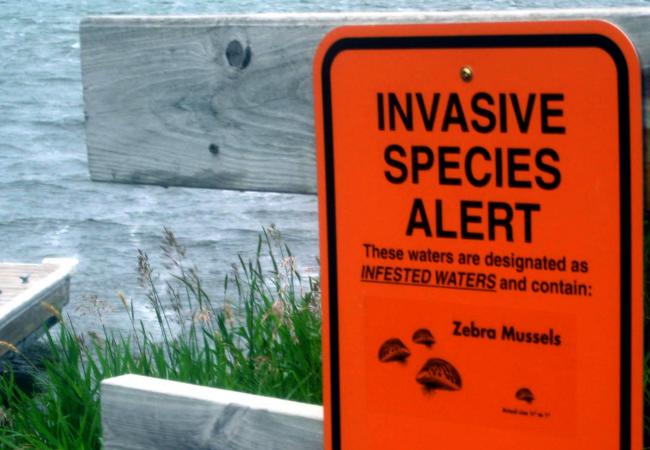-nature.org
My fellow bionerds,
It is now time to discuss the second part of the HIPPO acronym: invasive species. What is an invasive species you may ask? To give a brief, simplified defintion, an invasive species is an animal that has been introduced to an area that it normally does not reside in. Humans, of course, are responsible for moving these animals out of their natural habitat and into a completely new one. Now, one may think that these invasive species would suffer if they were re-located to a new area, but they are called "invasive" for a reason. What usually happens is that the animal is brought into a habitat where it has no natural predators; from here the invasive species will work it's way up the food chain, killing off native species on its radar. Before you know it, this introduced species is the king of the jungle.
 I think it's interesting to point out that often times species are introduced to a new area by accident. Take, for example, the fire ants that roam the Galapagos Islands. These ants and several other insects (check out the link in the previous sentence) did not get to the Galapagos Islands on their own. Human trade, ranging from the transport of timber, food, and other products, has allowed for the insects to hitch a ride to the Islands. Now they are taking over and destroying the senstive ecosystem of the Galapagos Islands.
I think it's interesting to point out that often times species are introduced to a new area by accident. Take, for example, the fire ants that roam the Galapagos Islands. These ants and several other insects (check out the link in the previous sentence) did not get to the Galapagos Islands on their own. Human trade, ranging from the transport of timber, food, and other products, has allowed for the insects to hitch a ride to the Islands. Now they are taking over and destroying the senstive ecosystem of the Galapagos Islands. Other times, invasive species are actually brought to an area on purpose. Yes, people will intentionally bring these species into an area to combat a pest or benefit the environment in some way. Unfortunately, if those who are introducing the species are not well educated on how the animal will interact with the environment, problems will arise. Take a look at this youtube video on the asian carp. The asian carp was brought over to the U.S. in order to eat a type of algae in lakes that was in overabundance (algae in excess is actually a sign of unhealthy bodies of water). All is good and well when these carp take care of the algae, but of course a problem has arised...the asian carp has no natural predators in the waters it has been introduced to. No natural predators means more asian carp, which means the prey the carp feed upon are killed off in large quantities. This could possibly destroy the entire ecosystem; recall that if one link in nature is removed, everything else falls apart. Hopefully ecologists will be able to devise a plan better than asian carp fishing competitions and electrical barriers at the entrances of lakes (the carp just jump right over the barriers) in the near future.
Ah yes, so now comes the important question. "What can I do to help?" This is a tricky one to help out with, but there are definitely ways to contribute to preventing this environmental problem. First of all, educate yourself on the wide array of invasive species. I can almost guarantee there are several species in your area that are considered invasive (keep in mind that many plants are invasive species as well!). The more you know about what ecologists are trying to minimize as far as invasive species go, the more cautious you can be about what you are planting in your yard or what insects/animals you need to be on the lookout for. Now don't just take matters into your own hands and set plants on fire or drench your yard in pesticides or shoot animals that you think are invasive. That may cause more harm than help; it takes an expert to know what is safe to kill or relocate as well as how the environment can be restored. If you find yourself in a situation where invasive species are in your yard or nearby, contact a local nature park or wildlife center to seek expert help. Several websites, such as the Nature Conservancy, can provide you with even more ideas on what you can do to stop the spread of invasive species.
I feel as though invasive species are one of the least understood and acknowledged parts of HIPPO. I encourage you to brush up on your knowledge about them so that we can work together to protect our marvelous ecosystems and the native plants and animals that inhabit them. Remember, you don't have to be an expert biologist or mad scientist to save the world; we all play a role in protecting the earth from human impact!
Peace. Love. Save the Tigers.
No comments:
Post a Comment